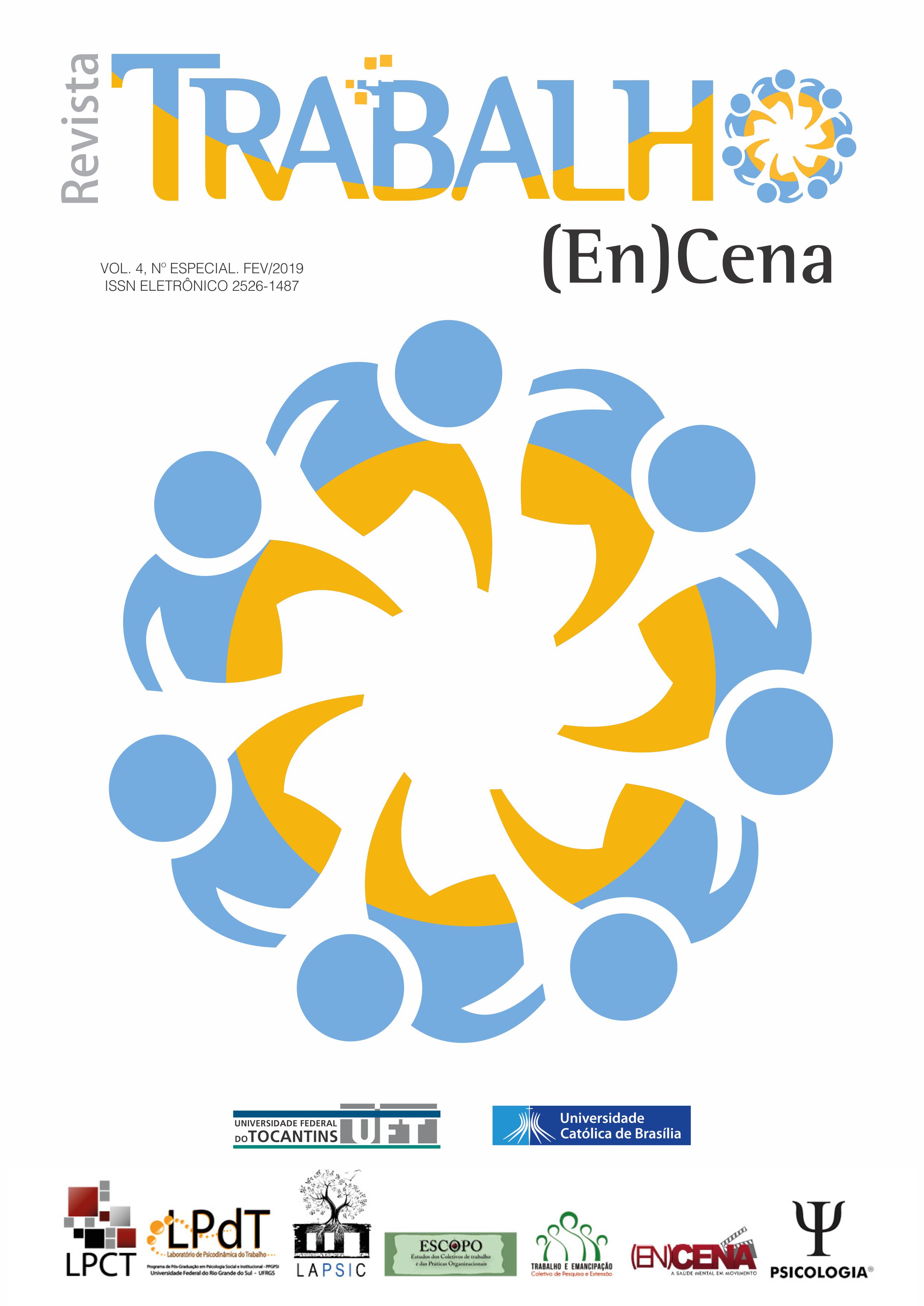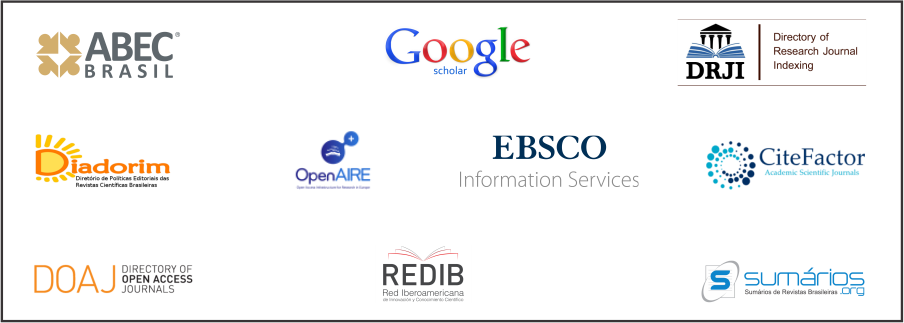Une analyse des risques des équipes d'intervention en matière de violence au travail:
DOI :
https://doi.org/10.20873/2526-1487V4NEspecialP77Résumé
Voici les modèles d'intervention développés par une équipe de travail Argentine autour du problème de la violence au travail dans les organisations. Les stratégies développées dans trois modes de demande sont analysées: les moteurs de l'organisation; celle des représentants syndicaux; celle des professionnels de la santé, en tenant compte de leur portée et de leurs limites. Le type d'obstacles communs aux stratégies d'intervention décrites est formalisé, que nous avons identifié et dénommé: la neutralisation des antécédents et des causes; la neutralisation des conséquences médiates et immédiates; et la psychologisation de la violence. Un ensemble de comportements identifiés de manière réflexe dans les équipes d'intervention est alors défini comme orienté pour réguler les flux émotionnels et les liens libidinaux qui sont générés dans les processus d'action et qui sont appelés mimésis, hyper-représentativité et annulation imaginaire. Dans la conclusion, la dynamique qui peut inverser certains de ces processus et la raison pour laquelle ils se trouvent comme des risques sont analysés.
Téléchargements
Publié-e
Comment citer
Numéro
Rubrique
Licence
Os direitos autorais dos artigos publicados pela Revista Trabalho EnCena permanecem propriedade dos autores, que cedem o direito de primeira publicação à revista. Os autores devem reconhecer a revista em publicações posteriores do manuscrito. O conteúdo da Revista Trabalho EnCena está sob a Licença Creative Commons de publicação em Acesso Aberto. É de responsabilidade dos autores não ter a duplicação de publicação ou tradução de artigo já publicado em outro periódico ou como capítulo de livro. A Revista Trabalho EnCena não aceita submissões que estejam tramitando em outra Revista. A Revista Trabalho EnCena exige contribuições significativas na concepção e/ou desenvolvimento da pesquisa e/ou redação do manuscrito e obrigatoriamente na revisão e aprovação da versão final. Independente da contribuição, todos os autores são igualmente responsáveis pelo artigo.






